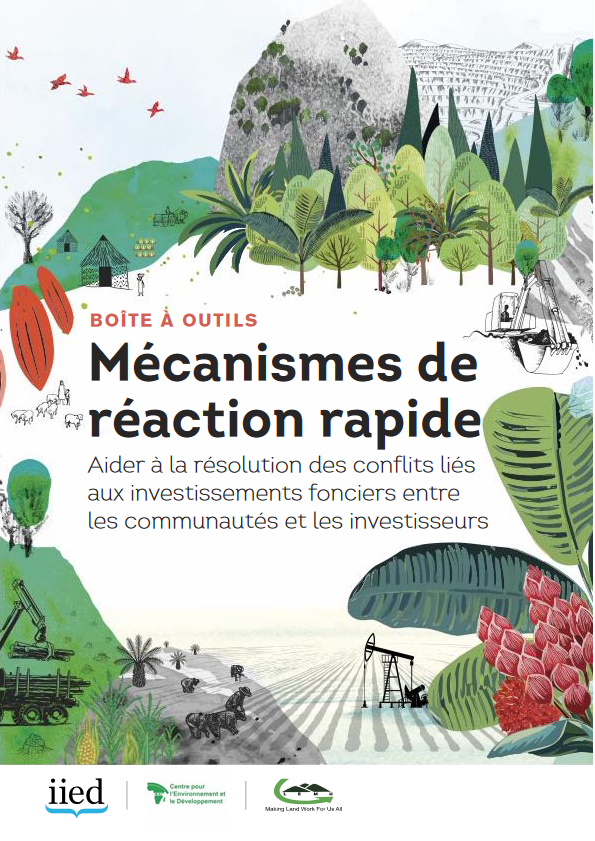With research, training and advocacy, we help build climate resilience, productivity and equity in the dryland areas of East Africa, Ethiopia, the Sahel and Sudan
Members:
Resources
Displaying 1 - 5 of 12Mécanismes de réaction rapide - Aider à la résolution des conflits liés aux investissements fonciers entre les communautés et les investisseurs
Souvent, les approches des violations des droits fonciers liées aux investissements sont réactives, plutôt que proactives et préventives : l’assistance juridique est généralement fournie après que les communautés ont été affectées, déplacées ou expulsées – et après que des vies ont été perdues, des biens détruits, des eaux et des sols pollués, et des communautés dévastées. L’aide juridique n’a alors que peu de chance d’inverser les dommages causés.
Land and decentralisation in Senegal
Land and decentralisation policies in Senegal have been closely linked since the country became independent in 1960. Although local governments manage public lands and participate in the management of special areas, the actual degree popular participation in land and decentralisation policies occurs strongly depends on the rights granted to local communities and governments and the available human and financial resources. This paper explores these issues and discusses their effect on decentralisation and land management in Senegal.
Land and decentralisation in Senegal
Land and decentralisation policies in Senegal have been closely linked since the country became independent in 1960. Although local governments manage public lands and participate in the management of special areas, the actual degree popular participation in land and decentralisation policies occurs strongly depends on the rights granted to local communities and governments and the available human and financial resources. This paper explores these issues and discusses their effect on decentralisation and land management in Senegal.
Landless women, hopeless women? Gender, land and decentralisation in Niger
This study aims to identify how women's capacity to become more involved in decision-making at the local level can be strengthened, particularly in terms of access to natural resources. It also aims to identify the structures through which women secure their systems of production. It focuses on the situation in Niger, where women are increasingly excluded from dominant systems of production: in agricultural areas, they are increasingly excluded from agricultural production and in pastoralist areas, they have lost their herds and had to resort to agriculture.
Landless women, hopeless women? Gender, land and decentralisation in Niger
This paper is a summary of a case study on gender, land and decentralisation. It addresses how women in rural areas of Niger deal with pressure on land within changing agricultural production systems. A separate focus is on women’s land rights, and the strategies they use to capitalise on these rights.





